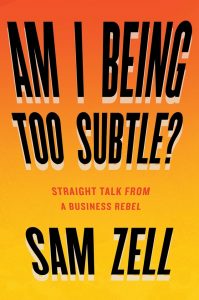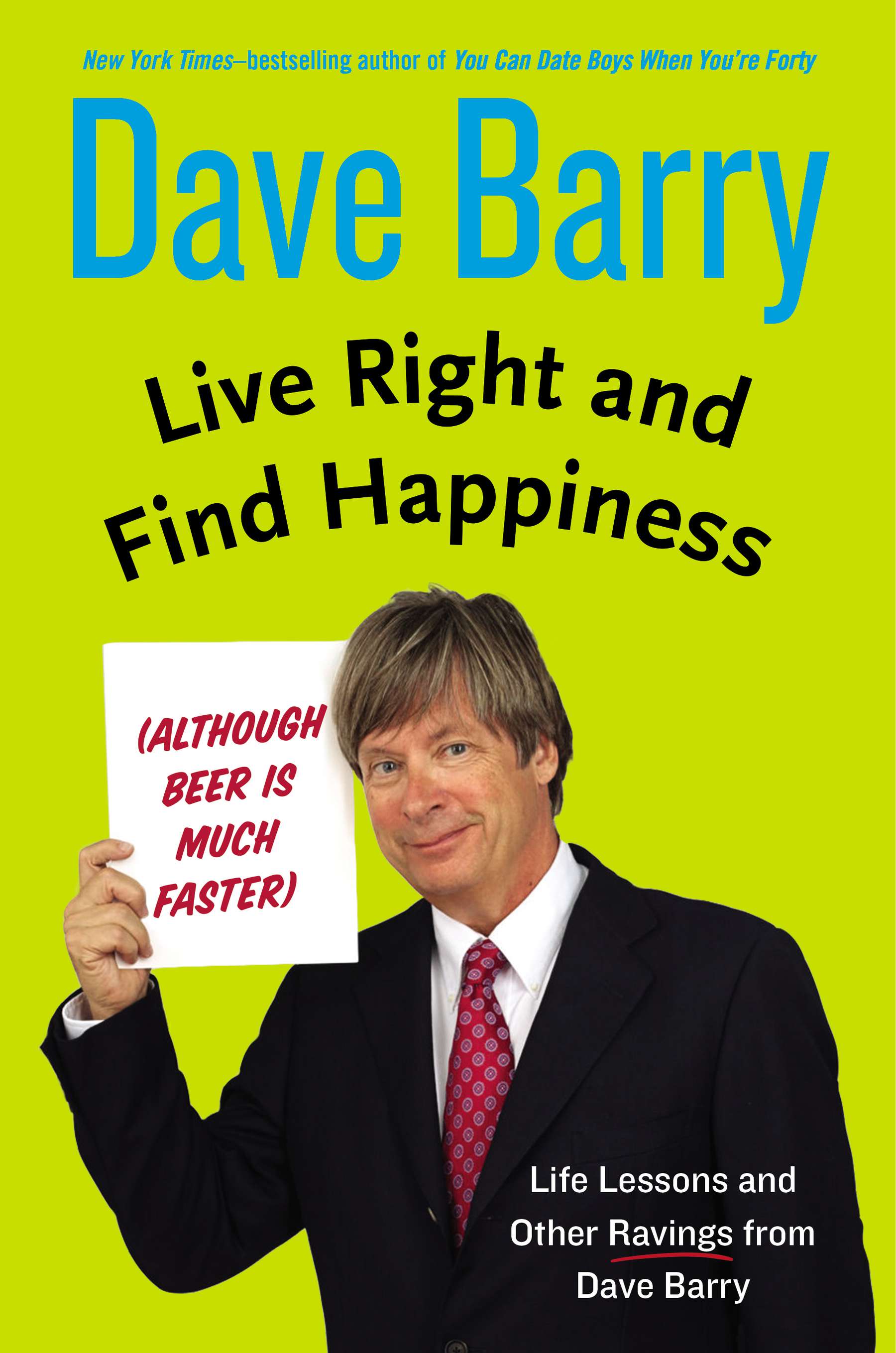Sam Zell, a self-made billionaire and chairman of Equity Group Investments, started out with a larger than life personality, an ability to see what others did not, and a willingness to take prudent risks. “If everyone is going left, look right,” is one of his compelling beliefs, and he acts decisively on his intellect and instincts. Over the years, he’s sponsored nearly a dozen IPOs and has created thousands of jobs. He’s active in a diverse group of industries, including real estate, manufacturing, logistics, health care, and communications. One of his mantras is, “If it ain’t fun, we don’t do it.”
Am I Being Too Subtle takes readers on a fascinating journey across Sam’s business and personal landscapes in an entertaining way that sheds light on an iconoclastic and legendary entrepreneur.
Your first entrepreneurial business experience with supply and demand occurred when you were twelve years old. Tell us about that.
My parents moved to the suburbs when I was twelve. They’d started me in Hebrew school when I was five, so by twelve, I needed an advanced school that didn’t exist in the suburbs. While my friends played baseball after class, I got on the train every day and went to the city. That gave a curious twelve-year-old boy an opportunity to see Chicago without a chaperone.
I discovered was there were magazine stands beneath the el tracks. Some of the magazines there weren’t for sale in the suburbs. In 1953, a local guy named Hugh Hefner came out with a magazine called Playboy. I quickly realized this was going to be in great demand among my friends because none of the suburban stores would carry something as risqué as that magazine. [Laughter].
I would read it on the way home. A friend looked at it and said, ‘Wow! Would you sell me your copy?’ It cost me fifty cents and I quoted him a price of three bucks. That opened my eyes to the fact that where the demand significantly outstrips the supply, margins could be very great. I was able to turn it into a viable business, and I imported lots of Playboy magazines to the suburbs.  [More laughter].
[More laughter].
As a second-year college student, you began a small business dealing with fraternities. Tell us about that.
I’d joined a fraternity during my first year at the University of Michigan. Fraternities always had pledge formals. The fraternities would give each attendee a memento of the evening. They were usually large glasses or dishes. I came up with the idea of selling the fraternities something different. My most successful product was an eight-foot-long stuffed snake.
So, I spent many a late-night tying ribbons with the fraternity’s or sorority’s name around these snakes to personalize them, and then I’d deliver the snakes. It was very profitable.
Why is the book titled Am I Being Too Subtle?
I went back and forth trying to think of potential names for the book. When we started thinking about why I’d succeeded beyond my own expectations, it struck me that I was very proud of the fact that no one has ever left my office and said, ‘What do you think he means?’
I’ve always been very direct with people. Though sometimes I may pay a price for my candor and lack of subtlety, it’s a clear way to achieve my objectives. When meeting with people and discussing different opinions, I sometimes jokingly ask, Am I being too subtle? Or I’ll say, Should I talk slower? Somehow, that mantra of mine best describes the spirit of the book.
Am I Being Too Subtle? details your first real estate investments while you were a student at the University of Michigan. Will you talk about that?
When I was a college junior, a friend and I wanted to live off-campus, rent-free. We went to the owner of a building and convinced this guy to hire us as managers in exchange for rent. This was the beginning of our rental management operation which grew exponentially over the next few years, and all through law school.
Simultaneously, I bought my first apartment house—a three-unit building for $19,500, with $1,500 down. We cleaned it up, repainted it, changed the furniture, and doubled the rent.
During the three years of law school—which I thought was an incredible bore—I kept my sanity by building a real estate business. I ended up buying a square block, house-by-house, and got very involved in the business. It taught me a lot.
After graduating from law school, I had to decide if I wanted to stay in Ann Arbor and be a big fish in a small real estate pond, or return to Chicago. I chose to return to Chicago to test my limits, and find out what I could do.
After returning to Chicago, Am I Being Too Subtle? describes an interesting element in your life. You were a practicing attorney for about four days, and then went into your own business. Will you explain?
On my first day of work at a Chicago law firm, I was given the task to write a contract between a linen supply company and a university. For those who don’t know, after graduating from law school, you know virtually nothing about law.
I was doing my best to draft this agreement. After two days, I sent my effort off to the senior partner. When it came back to me, it looked like the guy had slit his wrists all over it because the papers were covered in red marks. It was clear I wasn’t the greatest scrivener in the world, and it also became clear to me that the legal profession was excruciatingly boring.
Despite having a pregnant wife at the time, the Friday of that first week, I went to the senior partner, and as only a twenty-four-year-old could say, I said, ‘I didn’t think what I’m doing is a good use of my time.’ He asked, “What are you going to do?’ ‘I’m gonna go back to what I was doing at Ann Arbor,’ I replied.
That was the totality of my legal career: four days.
However, despite law school being one of the worst things I’ve ever endured, the training was incredibly important. We live in a legalistic society. Over the last fifty years, my legal training and its focus on how to think have been extraordinarily valuable. From that perspective, going to law school was vital for me, though I can’t imagine why anyone would want to practice law. [Laughter].
Am I Being Too Subtle is filled with very personal stories. One of the most compelling is how your parents came to America. Tell our readers about that.
My parent lived on the eastern side of Poland until August thirty-first of 1939.
Hitler attacked on September first of that year.
The details of their trip are harrowing.
On August 24, 1939, my father was on a business trip to Warsaw when his train made a stop at the halfway point. He saw a newsboy selling papers and stepped off to buy one. The headline read that Germany and the Soviet Union had just signed a nonaggression pact. He knew with certainty that Poland, squeezed in the middle between Germany and Russia, would be attacked from both sides and be divided between the two aggressors. It was time to get out. My father immediately crossed the tracks to board a train heading back home.
His train arrived in Sosnowiec at 2:00 p.m. It was a ten-minute walk home, and when he got there he told my mother to pack what she could carry. They boarded the 4:00 p.m. train out that afternoon.
He took my mother and sister, Julie, to a relative’s house in Kielce, about seventy-five miles away, and then returned to their hometown in one last effort to beg their families to leave Poland with them. But, they refused. So, my parents and sister started out alone on a nearly two-year odyssey. The Germans invaded Poland at dawn. My father had caught the last train out of Sosnowiec before the Nazis bombed the railroad tracks.
My parents and sister spent the next twenty-one months travelling east, which was the only direction they could go, eventually arriving in the United States in May of 1941.
I was born in September, so, I was really the child of immigrants.
As a result, I came to understand the importance of immigration, and realized that immigrants are a self-selected population of risk-takers. The reason the United States is exceptional is simple: we’re filled with immigrants, people who took immense risks in coming here rather than simply believing their lives elsewhere would be ‘okay.’
Unfortunately, my parents’ families who choose not to go with them, didn’t survive the Holocaust.
Speaking of your parents, both had an enormous influence on you. Tell us about that.
In our house, it was very clear that love was abundant and wonderful, but respect was required. I was always sensitive to my parents’ position. Frankly, there were lots of situations where I disagreed with them. Growing up in that kind of household had profound implications for the decisions I would later make. My curiosity and appreciation of international issues are very much connected to the fact that I realized we were given the extraordinary opportunity to become Americans. It bred in me a sense of patriotism and a need to learn about the rest of the world.
How and why did you get the moniker the Grave Dancer?
In 1977, I was buying lots of distressed assets. I was asked by Real Estate Review to write an article about my experiences. Trying to decide on a title that would reflect what I was doing, I decided the piece would be called The Grave Dancer. That caught on. As I bought more and more distressed properties and businesses both in and outside of real estate, the Grave Dancer moniker just stuck to me.
You’ve worn jeans to work since the 1960s. You’ve even worn them to the fanciest restaurants on the planet. Am I Being Too Subtle describes the unique culture at Equity Group Investments. Will you tell us about that?
I think it comes down to a very simple mantra: If you dress funny and are really good at what you do, you’re eccentric. If you dress funny and you’re not so good at what you do, then you’re a jackass.
From the beginning, we realized at EGI, that if we really excelled, we would get a pass on almost anything we did, so long as it was legal. We work very long days, and the last thing we want to do is dress in straight, uncomfortable clothes. We started coming to work in casual clothing. After wearing a suit and tie to work for a couple of months, I said to myself, ‘This is crazy.’ So, I just started dressing accordingly. In 1969, our clients wanted to come to our offices to see how anyone could possibly dress like we did and still do a good job. I think we were testing our limits.
Testing your limits is what you’ve done throughout your career, isn’t it?
It’s always been my intention. It’s been my mantra.
If you could live your life over again, would you do anything differently?
Of course, there are things that might have been done differently, but I only look forward. I’ve never rued any decisions I’ve made. I never sat around thinking, ‘If only I’d gone right instead of left.’ I don’t spend much time worrying about what I could’ve or would’ve or should’ve done. It’s much more important to focus on what I’ll be able to do.
Enormous wealth provides great opportunities as well as potential predicaments. Will you talk about that?
One thing I hope I convey in the book is for me, money is only a way of keeping score. It’s not the ultimate goal.
Being economically productive has given me resources well beyond my ability to spend. I make lots of charitable contributions. Having the means to make a difference in people’s lives is really an extraordinary gift. Perhaps, it’s the most important gift success has given me.
My wife, Helen, has established a creative writing program at the University of Michigan. I’ve created a real estate program at Wharton. I not only fund endeavors, but I personally involve myself with them. I concentrate on programs that can make a difference. I very strongly believe anyone can write a check and put their name on a building. My goal is to create programs that change the way people think and to make a difference in the world.
What about the predicaments of great wealth?
My first reaction to that question is that I’ve lost a sense of privacy. I’ve been in the public eye for more than thirty years. Some people would love that. I’d much prefer not to walk down the street and have someone whisper to somebody else, ‘That’s Sam Zell.’ My diminished privacy is an unfortunate development.
How about wondering if people are being genuine with you or simply ‘stroking’ you because of your wealth?
Stuff like that happens every single day. I’ve always been somewhat cynical. I don’t know if I became more of a cynic by being wealthy, but I know I’ve often avoided people because I don’t want to get caught up in those kinds of hustles.
What, if anything, keeps you awake at night?
Many things in the world are disturbing. But, I’m sometimes kept awake by thinking about the future—not so much my own, but my family’s; and what’s going to happen in the world. I wonder what opportunities await us.
The last chapter of Am I Being Too Subtle? details the “rules” for success. They’re all unique, but most intriguing to me is ‘Obey the Eleventh Commandment.’ Tell us about that.
I once did an interview with a reporter who asked me if I had a mantra for success. I thought about it and said, ‘The Eleventh Commandment is Thou shalt not take one’s self too seriously. That’s been an important part of my life. Nobody laughs at me more than I do. No one’s more willing to challenge my own ideas that I am. One of my favorite comments to my associates is, ‘I’m not interested in your agreeing with me. Take me on. Challenge me.’ By not taking myself too seriously, I avoid falling into the traps egomaniacs suffer from.
Do you ever think of retiring?
People often ask me when I’m going to retire. My answer is, ‘Retire from what? I love what I do. The reason I’m good at what I do, is because it’s not a burden. It’s a joy. It’s what gives me fulfillment.’
Congratulations on penning Am I Being Too Subtle? a highly readable and revealingly personal book filled with unique insights, and unvarnished straight talk about business, people—their quirks and potentials—and about life itself.






 Dave Barry is a Pulitzer Prize-winning humorist and New York Times bestselling author of Insane City and You Can Date Boys When You’re Forty. From 1983 to 2005, he wrote a nationally syndicated humor column for The Miami Herald.
Dave Barry is a Pulitzer Prize-winning humorist and New York Times bestselling author of Insane City and You Can Date Boys When You’re Forty. From 1983 to 2005, he wrote a nationally syndicated humor column for The Miami Herald. Nine years ago, Jan Karon, the author of the hugely popular Mitford series of novels, announced that Light from Heaven (2005) would be the last Mitford book. Now, she’s back with a new Mitford novel featuring Father Timothy Kavanagh and his wife Cynthia, along with the rest of their family, neighbors and friends set in this fictional North Carolina town. The series has sold many millions of books and there’s no doubt that untold numbers of Jan Karon fans are ecstatic about the publication of Somewhere Safe with Somebody Good.
Nine years ago, Jan Karon, the author of the hugely popular Mitford series of novels, announced that Light from Heaven (2005) would be the last Mitford book. Now, she’s back with a new Mitford novel featuring Father Timothy Kavanagh and his wife Cynthia, along with the rest of their family, neighbors and friends set in this fictional North Carolina town. The series has sold many millions of books and there’s no doubt that untold numbers of Jan Karon fans are ecstatic about the publication of Somewhere Safe with Somebody Good.